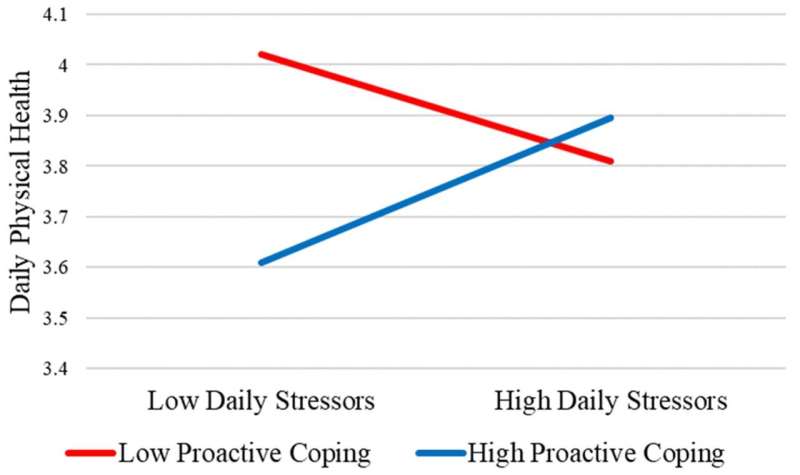Studies ID ways to help young adults avoid health impacts of stress

It's well established that experiencing stress can hurt our physical health. Now two new studies find that younger adults who take preemptive steps to respond to stress are better able to avoid those negative health outcomes.
"The fact that we have two studies with the same results highlights the importance of proactive coping for younger adults when it comes to handling stress," says Shevaun Neupert, corresponding author of a paper on the two studies and a professor of psychology at North Carolina State University.
"These results are important for helping us work with people to build resilience, since proactive coping refers to skills that can be taught. The findings also suggest that younger adults, in particular, can benefit significantly from these skills."
Proactive coping is an umbrella term for behaviors that allow people to avoid future stressors or prepare themselves to respond to those stressors. These can be behavioral, such as saving money to deal with unexpected expenses, or cognitive, such as visualizing how to deal with potential challenges.
"You can also think of proactive coping as a way of helping people continue to work toward their goals, even when dealing with challenges," Neupert says.
The first of the two studies focused on skills that allowed people to concentrate on their goals when dealing with stressors. For this study, the researchers enlisted 223 people: 107 younger adults (ages 18-36) and 116 older adults (ages 60-90). Study participants completed an initial survey that focused on understanding goal-oriented proactive coping behaviors that the participants engaged in.
The participants then completed daily surveys for the next eight days, recording the stressors they experienced each day, as well as their physical health symptoms.
"We found that younger adults who consistently engaged in proactive coping, such as thinking about what they need in order to be successful, experienced fewer negative physical health symptoms on stressful days," Neupert says. "However, there was no positive or negative effect of proactive coping for older adults."
The second study focused on efforts aimed at avoiding or preventing stressors. For this study, the researchers enlisted 140 people between the ages of 19 and 86. Study participants completed a baseline survey designed to capture their stress-prevention proactive coping behaviors. After that, the study participants completed daily surveys for 29 consecutive days, reporting on their daily stressors and physical health.
For this study, the researchers found that adults between the ages of 19 and 36 who engaged in proactive coping reported little or no drop-off in physical health on stressful days, compared to adults in the same age range who engage in less proactive coping. However, as with the first study, proactive coping had no effect for older adults.
"The effects in the both studies were linear, so the more proactive coping younger adults engaged in, the better their physical health on stressful days," Neupert says.
"These findings suggest there is tremendous value in teaching young people how to engage in proactive coping, starting with college-age young adults, but extending through to people who are established in adulthood."
The paper is published in the journal Forecasting.
More information: Shevaun D. Neupert et al, A Coordinated Analysis of Physical Reactivity to Daily Stressors: Age and Proactive Coping Matter, Forecasting (2022). DOI: 10.3390/forecast4040054




















